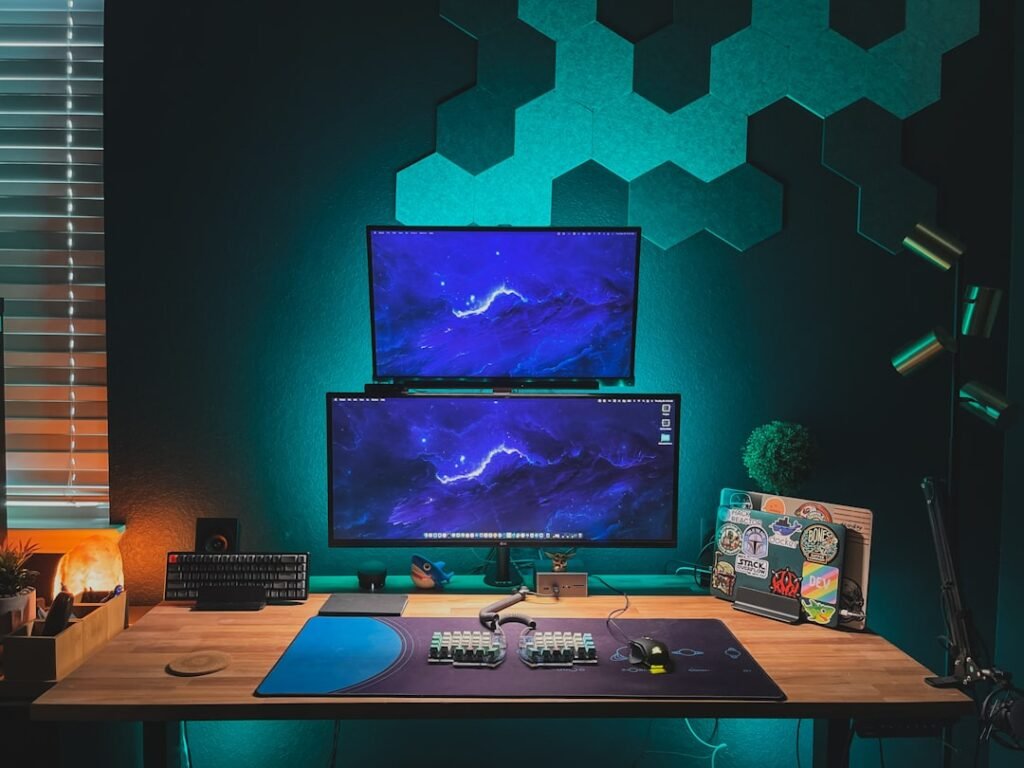Now Reading: The Evolution of Gaming: A Decade of Change
-
01
The Evolution of Gaming: A Decade of Change
The Evolution of Gaming: A Decade of Change

As I reflect on the evolution of gaming, one of the most significant transformations I have witnessed is the meteoric rise of mobile gaming. Just a decade ago, gaming was predominantly confined to consoles and PCs, with a niche market for handheld devices. However, the advent of smartphones has revolutionized the landscape, making gaming accessible to a broader audience than ever before.
I remember the excitement of downloading my first mobile game; it was a simple puzzle game, yet it captivated me in ways I hadn’t anticipated. The convenience of being able to play anywhere, whether I was commuting or waiting in line, made gaming an integral part of my daily routine. The statistics surrounding mobile gaming are staggering.
According to recent reports, mobile games now account for over half of the global gaming market revenue. This surge can be attributed to several factors, including the affordability of smartphones and the availability of free-to-play games that entice users to try them out without any initial investment. I find it fascinating how titles like “Candy Crush” and “PUBG Mobile” have not only captured the attention of casual gamers but have also fostered communities that rival those found in traditional gaming platforms.
The social aspect of mobile gaming has transformed it into a shared experience, allowing me to connect with friends and family in ways that were previously unimaginable.
The Impact of Virtual Reality
The Immersive Experience of VR
When I first put on a VR headset, I was transported to a new dimension, where my senses were engaged in a way that traditional gaming couldn’t match. I recall playing a VR game that required me to navigate through a fantastical landscape filled with challenges and puzzles. The sensation of physically moving within that space was exhilarating, making me feel like I was an integral part of the adventure.
Beyond Entertainment: The Potential of VR
As I explore this technology further, I’m struck by its vast potential beyond gaming. VR simulations are being used to train medical professionals in surgical procedures, help individuals overcome phobias through exposure therapy, and enhance education and training. This versatility is what excites me most about VR – it’s not just a novelty for gamers, but a tool that can improve various aspects of life.
The Future of VR: Endless Possibilities
As developers continue to innovate and create more engaging content, I can only imagine how VR will evolve and integrate into our daily experiences. With its potential to reshape industries and aspects of our lives, the future of VR is undoubtedly bright and full of endless possibilities.
The Shift to Online Multiplayer Gaming

The shift towards online multiplayer gaming has been another pivotal change in my gaming journey. Gone are the days when I would sit alone in front of a screen, battling against AI opponents. Now, I find myself immersed in vast online worlds where I can team up with friends or compete against players from around the globe.
This transition has transformed gaming into a social activity, fostering connections and friendships that extend beyond the virtual realm. I recall countless nights spent strategizing with friends in games like “Fortnite” or “Call of Duty,” where communication and teamwork were essential for success. This shift has also led to the rise of communities centered around specific games or genres.
Platforms like Discord have become hubs for gamers to connect, share strategies, and form lasting bonds. I appreciate how these communities provide a sense of belonging, allowing me to engage with others who share my passion for gaming. Additionally, the competitive nature of online multiplayer games has given rise to new challenges and experiences that keep me coming back for more.
Whether it’s participating in ranked matches or joining guilds, the thrill of competition adds an exhilarating layer to my gaming experience.
The Emergence of Esports
As I delve into the world of competitive gaming, I cannot overlook the emergence of esports as a cultural phenomenon. What once was considered a niche hobby has exploded into a global industry, complete with professional teams, sponsorships, and massive tournaments that draw millions of viewers. I remember watching my first esports tournament online; the energy and excitement were palpable as teams battled for supremacy in front of a live audience.
It was eye-opening to see how far gaming had come, evolving from casual play to a legitimate sport that commands respect and admiration. Esports has not only changed how I view gaming but has also created opportunities for players to turn their passion into careers. Many professional gamers now enjoy lucrative contracts and sponsorship deals, showcasing their skills on platforms like Twitch and YouTube.
This shift has inspired countless individuals, including myself, to pursue competitive gaming seriously. The dedication and discipline required to excel in esports are akin to traditional sports, and witnessing this evolution has deepened my appreciation for the craft involved in competitive play.
The Influence of Streaming and Content Creation
The rise of streaming platforms has significantly influenced my relationship with gaming. As someone who enjoys both playing and watching games, I find immense joy in tuning into live streams on platforms like Twitch or YouTube Gaming. Watching skilled players navigate complex challenges or engage in entertaining commentary adds an extra layer of enjoyment to my gaming experience.
It’s fascinating how streamers have become modern-day celebrities, building dedicated fanbases and creating content that resonates with viewers worldwide. Content creation has also allowed me to express my own passion for gaming in new ways. Whether it’s sharing gameplay highlights on social media or starting my own YouTube channel, the opportunities for creativity are endless.
I’ve discovered that sharing my experiences not only enhances my enjoyment but also connects me with others who share similar interests. The interactive nature of streaming allows me to engage with viewers in real-time, fostering a sense of community that transcends geographical boundaries. This dynamic relationship between gamers and content creators has transformed how we experience games together.
The Evolution of Gaming Technology

As I look back on my journey as a gamer, it’s clear that the evolution of gaming technology has played a crucial role in shaping my experiences. From the early days of 8-bit graphics to today’s stunningly realistic visuals powered by advanced graphics engines, each technological leap has brought new possibilities and experiences. I remember being awestruck by the graphics in games like “The Last of Us” or “Cyberpunk 2077,” where every detail—from character animations to environmental effects—immersed me in richly crafted worlds.
Moreover, advancements in hardware have made gaming more accessible than ever before. With powerful consoles like the PlayStation 5 and Xbox Series X offering incredible performance at relatively affordable prices, I find myself constantly amazed by what’s possible within the realm of gaming. Additionally, innovations such as cloud gaming are breaking down barriers by allowing me to play high-quality games on devices that wouldn’t typically support them.
This democratization of technology ensures that gaming remains an inclusive space where everyone can participate and enjoy the experience. In conclusion, as I navigate through the ever-evolving landscape of gaming, I am continually inspired by its growth and transformation. From mobile gaming’s rise to the impact of virtual reality and the emergence of esports, each development enriches my experience as a gamer.
The shift towards online multiplayer gaming and the influence of streaming have fostered connections and communities that enhance my enjoyment further. As technology continues to advance, I eagerly anticipate what the future holds for this dynamic industry that has become such an integral part of my life.
Over the last decade, the gaming industry has seen significant changes in various aspects, including the rise of collegiate esports and scholarship opportunities. The growing influence of collegiate esports is explored in detail in an article titled The Growing Influence of Collegiate Esports Scholarship Opportunities. This article delves into how universities are now offering scholarships for esports players, highlighting the increasing recognition and legitimacy of competitive gaming as a sport. Additionally, the impact of morality systems in gaming and valuable tips for beginners looking to level up their gaming skills are also important factors to consider in understanding the evolution of gaming over the past decade.



























